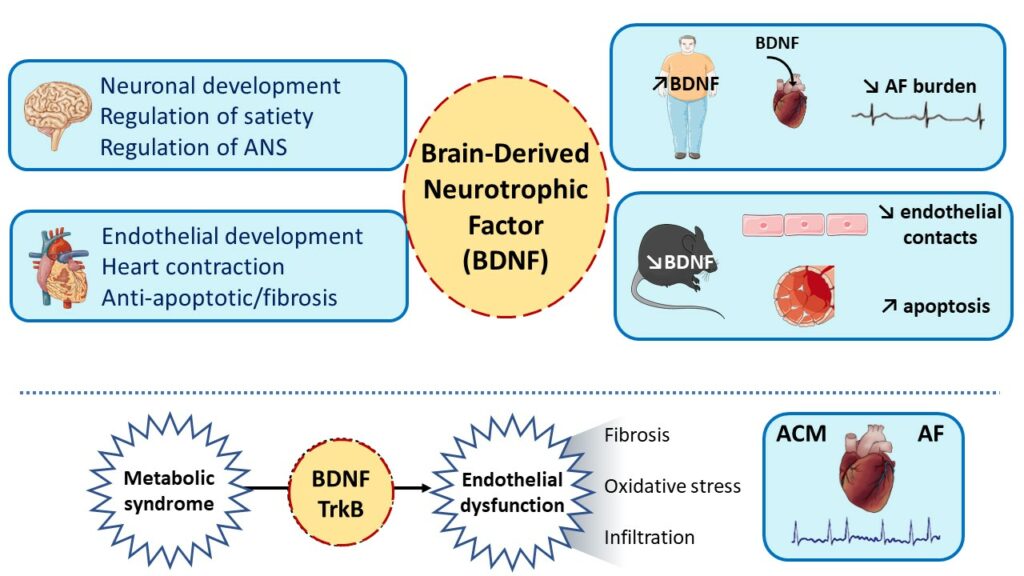Atrial fibrillation (AF) is a common arrhythmia associated with serious cardiovascular complications, with metabolic syndrome being a major risk factor. BDNF, a neurotrophic factor expressed in various tissues, plays a key role in vascular and metabolic function. Although the BDNF/TrkB pathway is linked to cardiovascular diseases, its role in AF remains poorly studied. High levels of BDNF would reduce the risks of AF, but in metabolic syndrome, BDNF levels are decreased, contributing to endothelial dysfunction. The PEC2 experimental laboratory has developed a murine model that reproduces characteristics of metabolic syndrome and exhibits spontaneous or stimulation-induced episodes of AF. This model suggests an involvement of BDNF in atrial cardiomyopathy related to AF. The central hypothesis is that the decrease in BDNF exacerbates endothelial dysfunction, promoting AF in an altered metabolic context. Our research aims to elucidate this multifactorial mechanism, and our project, supported by the ANR (METAPROFIL), aims to study the link between cardiac BDNF expression and the onset of atrial cardiomyopathy in our murine model of metabolic syndrome.
